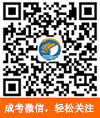
疑问句
疑问句分为一般疑问句、特殊疑问句、选择疑问句和反意疑问句。
1.一般疑问句
一般疑问句通常以助动词开始,要求以yes 或no回答。如:
“Will you pass on a message to him?” “Yes, what's it?”
“Do you like sports?” “No, I prefer reading in my spare time. ”
2.特殊疑问句
特殊疑问句以疑问代词开头,后面通常接一般疑问句,如果疑问词或其修饰的词作句子的主语,后面应用陈述句句序。如:
How much did she charge ?
Who is responsible for the accident?(be responsible for 为……负责)
“______ do you record the temperature in the lab?”
“Every two hours.”
A. How soon B. How long C. How often D. How much(答案 C how often 表示频率,how soon最快……,how long 一段延续的时间,how much 问价钱)
3.选择疑问句
选择疑问句在结构上类似于一般疑问句,选择的两部分由or连接起来。如:
Do you prefer coffee or tea? -Either will do.
Are you from Shanghai or Suzhou?-I'm from Suzhou.
4.反意疑问句
反意疑问句由两部分组成,前一部分用陈述句的形式,后一部分是一个简短的问句。如果前一部分用肯定形式,后一部分通常用否定形式,前一部分用否定形式,后一部分就用肯定形式,两部分主语的人称、时态应保持一致。如:
You are going out today, aren't you?
We can't take the books out, can we?
当反意疑问句的前一部分是否定句,或含有no, nothing, never, hardly, seldom等词时,回答时应特别注意。事实上肯定的用yes,事实上否定的用no.
You won't be away for long, will you?-No, I'll be back in ten minutes.
He is hardly ten, is he?-Yes, he is ten.
You haven't any objection to the idea, have you?-No, I haven't.(objection to 反对,to是介词)
They have no classes tomorrow, have they?-No, they haven't.
日常用语中有些反意疑问句构成与上述不同,有其独特的方式。如:
Have a cup of tea, will you?
Let's meet at the station, shall we?
What a lovely day, isn't it?
4.反意疑问句
1. You never told us his phone number, _______?
A. hadn't you B. didn't you C. had you D. did you
答案 D
2. I don't think you've heard of him before, ________?
A. don't I B. do I C. have you D. haven't you
答案 C
3. Mountains can be very dangerous, ________?
A. can't they B. aren't they C. don't they C. won't they
答案 A
4. “Jill has a toothache.”
“It's been hurting her for quite a while, _______?”
A. isn't it B. doesn't it C. wasn't it D. hasn't it
答案 D
5. Beginners have to learn from their mistakes, _______ they?
A. haven't B. mustn't C. don't D. aren't
learn from 从……学到
答案 C
6. “It's awfully cold this morning.”
“Yes, but it's not colder than it was yesterday, _______ it?”
A. wasn't B. isn't C. is D. was
答案 C
7. Let's try a bit harder, _______?
A. will we B. shall we C. do we D. are we
答案 B

